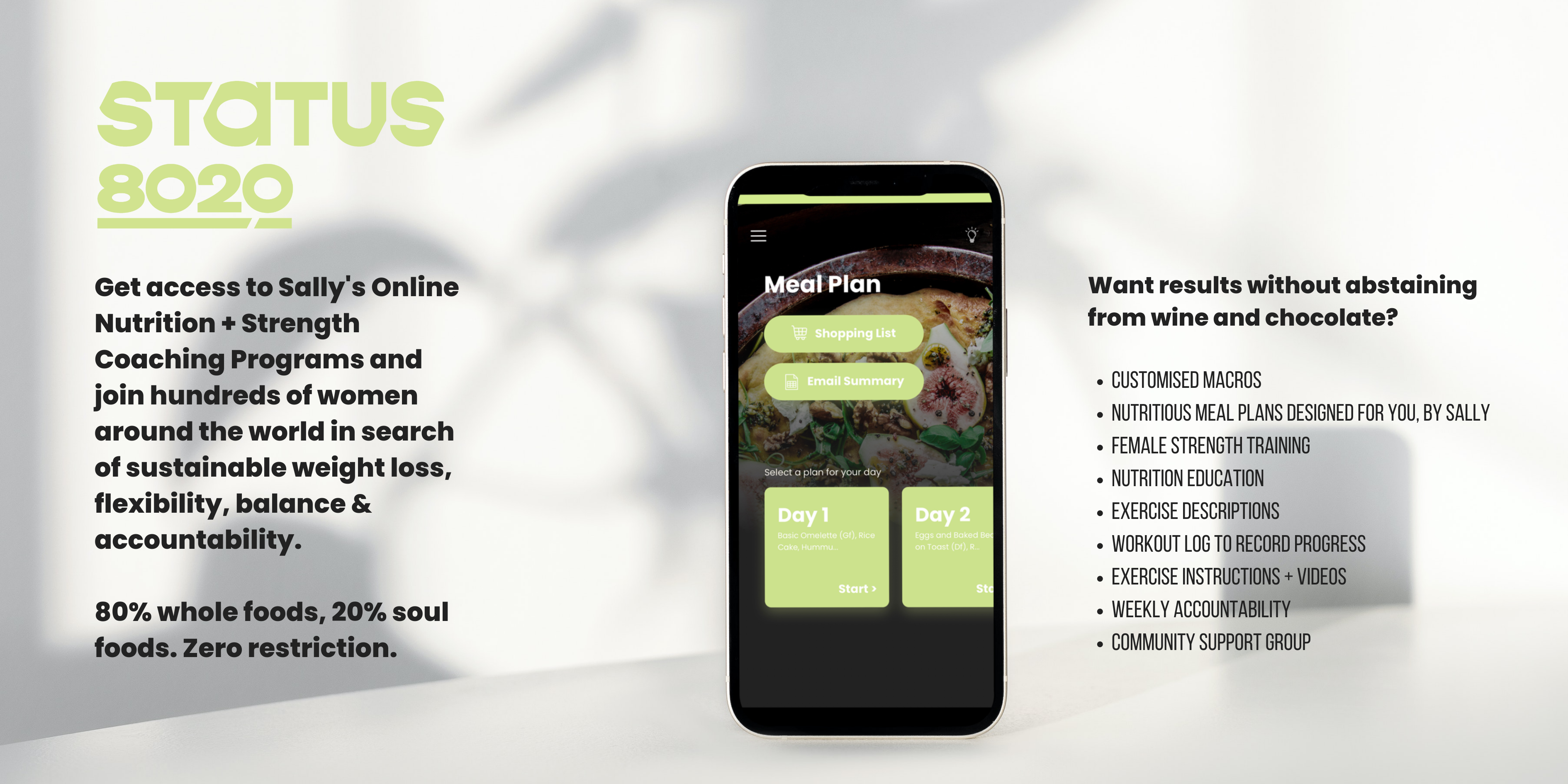We've all been told the key to maintaining a diet is 'calories in vs. calories out'. In other words, as long as you expend (via regular exercise and daily activities) as much as your consuming, your body will be healthy. There's so many things I hate about this, not least because it encourages us to solely focus on kilojoules for optimum health.
NOT ALL CALORIES ARE CREATED EQUAL. I don't need my nutrition degree to tell me that.
On paper, there may be an argument for eating 1200 calories of junk, and still being able to lose or maintain weight (depending on your goals), but let's be honest, what that junk is doing to your body needs a bit more investigation.
Peanut butter Vs White Chocolate
Consider 100 kcals of white chocolate, and 100 kcals of natural peanut butter, for example. The white chocolate is likely to contains sugar, flavours and milk fats, being a highly processed product from it's source ingredients. The peanut butter on the other hand, contains zero sugar and flavours, but also contains fats. It is minimally processed, simply by grinding nuts to a paste.
The PB is high in good fats that help satiate us, give us glowing skin and shiny hair. Our body understands this stuff. The chocolate on the other hand, contains a different kind of fat - not the good kind. It is also devoid of essential nutrients.
They 'cost' the same in calories, but have completely different effects our bodies. One is nourishing, the other nourishless (did I just make up a new word?!).

How to make better choices without calorie counting
Micro nutrients are an important part of the health food equation. These guys are the vitamins, minerals and antioxidants we find in abundance in those nourishing foods.
Macro Nutrients are the things that forms the bigger picture of food - the breakdown of carbs, fats and protein. Ideally a meal has a balance of all three to give us a well-rounded nutritional profile and the wholesome energy our body needs.
All well and good me telling you to stop looking at calories and focus on other elements of food to better your health, but I'm a food blogger, and I have time for that kind of thing, right?!
Fortunately, the Government-led Health Star Rating to the front of many foods (with more companies are adopting it every week!) so that at a glance you can compare the OVERALL healthfulness of a food. The ratings are based on a number of factors including energy, saturated fat, sugars and sodium (salt), so you can save time studying labels and more time whizzing around the supermarket - shopping counts as cardio. Truth.
*Editor’s Note: This article is proudly sponsored by Health Star Rating. Thank you for supporting the sponsors who make The Fit Foodie Blog possible. All opinions are my own and not influenced in any way.



Very true that calories do matters in optimizing your health. Actually we are care less what ever we have in front,we just eat it.
Thanks for your post.
Always such a great and useful site this is. You made a good site it very help us. I got such good information it’s very important to us. Thanks for sharing the best posts they very nice and amazing.
Very true that calories do matters in optimizing your health. Actually we are care less what ever we have in front,we just eat it.
Thanks for your post.
Always such a great and useful site this is. You made a good site it very help us. I got such good information it’s very important to us. Thanks for sharing the best posts they very nice and amazing.